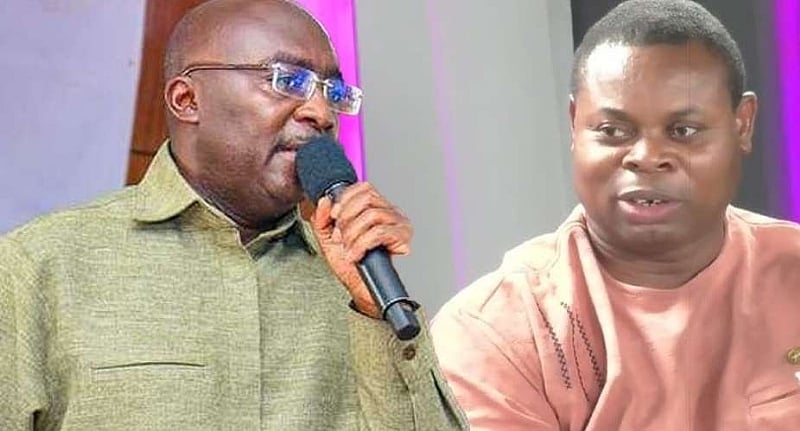Franklin Cudjoe, the founder and president of IMANI Africa, has voiced strong criticism of Dr. Mahamudu Bawumia, Ghana’s Vice President and the New Patriotic Party (NPP) flagbearer for the upcoming elections. Cudjoe’s recent commentary centers on what he perceives as Bawumia’s failings in economic management, asserting that these failures have led to the financial struggles Ghana currently faces. In a candid Facebook post, Cudjoe does not shy away from labeling the Vice President with a “badge of economic dishonour,” a phrase encompassing his assertion that Bawumia’s policies and decisions have contributed significantly to the nation’s fiscal deterioration.
In his critique, Cudjoe articulates various economic indicators that illustrate the severity of Ghana’s financial situation. He highlights significant factors such as an overwhelming national debt, depreciation of the local currency, soaring unemployment rates, and escalating inflation. Furthermore, he points to Ghana’s increasing dependence on International Monetary Fund (IMF) assistance as evidence that the government’s current economic strategies are failing. Cudjoe attributes these complications to what he deems the government’s excessive borrowing practices, arguing that they have exacerbated poverty levels and left the economy in a precarious state.
Cudjoe’s post underscores the stark rise in Ghana’s national debt during Bawumia’s tenure, specifically noting that the Vice President’s policies have added an alarming GH₵671 billion to the national debt over a mere seven years. He contrasts this figure with the cumulative debt of GH₵120 billion amassed by all administrations since Ghana’s independence in 1957, which dramatically emphasizes Bawumia’s economic management failures. This debt accumulation forms the crux of Cudjoe’s argument for why Bawumia deserves the aforementioned “badge of dishonour,” painting a picture of financial mismanagement that he believes cannot be overlooked.
Moreover, Cudjoe draws parallels between the political landscapes of Ghana and the United States, particularly referencing Donald Trump’s return to the political scene and the aspirations of former President John Dramani Mahama to regain power in Ghana. This comparison serves to highlight the fundamental differences in public sentiment regarding economic performance. Cudjoe argues that Americans’ support for Trump was largely driven by a positive memory of economic conditions during his administration. He provocatively asks, “What do you remember of the economic legacy of the current government as compared to John Mahama’s NDC?” This inquiry is intended to challenge Ghanaians to reflect on their own economic experiences and the effectiveness of the current leadership.
Cudjoe’s remarks contribute to an ongoing debate in Ghana about the country’s economic trajectory and the required leadership to navigate these troubling times. His criticism is not merely a personal denunciation of Dr. Bawumia but also reflects broader concerns about the government’s economic policies and their long-term implications for the citizens of Ghana. By framing his arguments around quantifiable economic data and comparative political scenarios, Cudjoe seeks to provoke a re-examination of the current administration’s capabilities in reversing the negative economic trends that have emerged in recent years.
The discussion sparked by Cudjoe’s comments highlights the urgency for Ghana to address its economic challenges effectively. As issues such as inflation and unemployment persist, the need for strategic governance becomes increasingly crucial. Cudjoe’s insights serve as a call to action for politicians and voters alike, emphasizing that effective leadership is essential to restoring economic stability and fostering growth. Ultimately, his critique of Dr. Bawumia raises pivotal questions about accountability, governance, and the future direction of Ghana’s economy in the face of adversity.














